THE BLOOD BRAIN BARRIER
A very important biological function is the Blood Brain Barrier (BBB), which unfortunately runs the risk of becoming permeable. This barrier acts as a filter in the blood which determines which molecules and substances will be able to cross it in order to penetrate into the brain. This barrier is semi-permeable in its natural state and sorts through the materials the brain needs such as glucose, amino acids, fat-soluble nutrients and ketones, and blocks the passage to toxic substances and pathogens. Like the intestinal wall, which can be permeable and whose tight junctions can open to admit undigested proteins and other substances, the brain wall runs the same danger. The integrity of this barrier can be compromised by a variety of factors; exposures to toxic products; chronic inflammation of the body; chronic stress; alcohol; and probably other factors still undetermined. The point is that once the barrier becomes permeable, the brain is vulnerable and an inflammatory cascade ensues that can have serious repercussions on optimal brain function.[1] A slow and subtle decrease in brain function can begin as well as a feeling of daily mental fog, loss of concentration and memory loss and give way to chronic brain inflammation that can degrade into neurodegenerative diseases such as dementia, Parkinson’s and Alzheimer’s.[2] As the permeability of this barrier is often linked with a loss of integrity of the intestinal wall, it is often related to digestive problems.
How is the blood-brain barrier constituted?
The BBB is made up of three systems that regulate the entry of molecules between the blood and the blood system of the brain.
- The physical barrier between the blood and the brain, consisting of a single layer of endothelial cells lining the rim of the walls of the blood capillaries.
- Specific transporters between the blood and the brain
- An enzymatic barrier that contains neurotransmitters and enzymes that manage the toxins that come close to it.
As the physical barrier containing only a single layer of cell, like the intestinal wall, it can be weakened and thus leave room for the entry of toxic molecules and undigested proteins instigating an inflammatory cascade in the brain by the glial cells. These are the cells of the immune system present between the neurons and are 10x more numerous than the latter.
How is the BBB affected?
One of the first causes that can affect the regulation of the barrier is lack of sleep or lack of restful sleep. A research team has demonstrated that REM (Rapid Eye Movement) phases in sleep cycles are directly related to the integrity of the barrier.[3] Chronic lack of sleep induces a cascade of problems with normal glucose use and can ease BBB degradation.
Chronic inflammation, the evil of the century, linked to constant stress, junk food and environmental toxins is an agent that promotes the degradation of the BBB. Unfortunately, this so common condition seems to have tragic repercussions on the brain.[4]
Chronic consumption of alcohol is also another cause studied.[5] The degradation of alcohol in its by-products, which gives this feeling of headache for those who have already consumed too much, creates in the end damage to our precious wall.
Another very common factor is high blood pressure. Researchers have found a direct link between this state of tension in the arteries and the integrity of the BBB.[6]
It appears that the permeability of the barrier also increases under the effect of certain pathogens. It occurs also following concussions and also after the inflammation caused by a cerebral stroke. In the latter case, the integrity of the barrier could be compromised more during the following hours and gradually until four or five weeks after the accident. It is interesting to note that hyperglycaemia following an ACV showed a worsening of the inflammatory effects and an increase in the degradation of the BBB.[7]
It appears that the permeability of the barrier also increases under the effect of certain pathogens, following concussions and also after the inflammation caused by a stroke. In the latter case, the integrity of the barrier could be compromised more during the following hours and gradually until four or five weeks after the accident. It is interesting to note that hyperglycaemia following an ACV showed a worsening of the inflammatory effects and an increase in the degradation of the BBB.
Although there seems to be little study on this subject that may seem obvious, heavy metals are also a cause of the degradation of the BBB. Lead, Cadmium, Arsenic and Mercury are all accused.[8]
The last explored factor presents another piece of evidence that proves once again that glycemic stability seems to be a keystone of health. This study demonstrates that the glycemic variability associated with hyperglycemia causes damage to the integrity of the BBB, changes in the transport functions of the BBB for essential nutrients, and oxidative stress in the blood capillaries of the Central Nervous System.[9] It even advances the link between BBB degradation and Beta-Amyloid plaque protein transport between blood and CNS setting the stage for Alzheimer’s disease, now known as Type 3 Diabetes.
In summary, here is what is involved in the degradation of the BBB
- Lack of sleep
- Stress and chronic inflammation
- Alcohol
- Heavy metals
- ACVs, Concussions and Head Traumas
- Certain pathogens
- Hyperglycemia or diabetes I and II
Testing the blood brain barrier
The easiest test to see if the barrier is permeable or not according to the specialist in the field, the practitioner of functional medicine Datis Kharrazian N.D., D.C, is to take a capsule of the neurotransmitter GABA and observe if the sedative effects are felt. This molecule is usually too big to pass through a healthy brain wall and if the calming, relaxing and sedative effects of this capsule are felt, it indicates a deficient wall.
He proposes to take 1000mg, on an empty stomach, around 6pm and see if the person feels tired, calm, relaxing. In the positive case, this would indicate an impaired BBB.
How to repair the BBB?
Here are some solutions suggested by Ben GreenField in his article on the subject.
- Sleep
A deep and restful sleep with its full Deep Sleep and REM phases will be necessary to restore the BBB overnight. To optimize sleep, watch my blog about it here.
- Reduce alcohol
If the degradation of alcohol damages the BBB, reducing to one evening a week or eliminating alcohol seems obvious.
- Controlling high pressure
Garlic extracts and magnesium could actually lower the high pressure. There are even devices to strengthen the hands and forearms (Handgrip) that seem to reduce the high blood pressure by 10 points.[10]
- Control your blood sugar
Keeping a stable blood glucose level through a cyclic ketogenic diet, that is, with no carbohydrate or starch-free periods, and periods of refeed with carbohydrates, helps maintain low glycemic variability. See can see here my article on the subject. Plants such as bitter melon, cinnamon or apple cider vinegar also regulate blood sugar levels.
- Coffee and tea
It seems that caffeine helps to protect the BBB.
- Fats and fibers
It is suggested that a diet high in fat (40%) could damage the BBB. However, when this is combined with a large intake of fibers from plants, the rise in the permeability of the membrane is canceled. This is the case with garlic extracts, niacin, astragalus, curcumin and crucifers of the cabbage family.
- Detoxify its heavy metals
Undertaking a heavy metals detox is a risky process and should be done under the supervision of a health professional. This is the subject of a forthcoming blog.
- supplementation
Choline coming from Alpha-GPC is a form of choline that crosses the BBB and allows a rehabilitation of the epithelium of the membrane. Inositol from egg yolk also helps its integrity. Berberine also demonstrates a decrease in membrane permeability and helps in the resistance of brain damage to brain trauma. Vitamins B12, 6 and 9 would restore its balance.
- Magnesium
Strong supplementation of oral or dermal magnesium directly applied to the neck may reduce BBB degradation in subjects of study.à
- Stimulate the Vagus Nerve (X)
It seems that singing, electrical stimulation practices, cold water, meditation and Breathwork techniques can decrease the permeability of the wall through the stimulation of the tenth cranial nerve responsible of activating the parasympathetic nervous system.
- Intermittent Fasting
The hormone that stimulates hunger, ghrelin, positively affects the membrane in question. Thus, intermittent fasting would be conducive to the repair of it.[11] The same goes for the rehabilitation of brain trauma where it is proposed to avoid snacks and to take longer breaks between low glycemic meals.
- Cranial Osteopathy and Cranial Therapy
Manual therapy practices cold potentially reduce inflammation by creating a better flow in cerebro-spinal-fluids and blood arrival through the brain.
- Microbiome
This study showed that transplanting good bacteria from a healthy mouse could allow a mouse with a deficient BBB to repair it.[12] Thus, taking quality probiotics, ingesting prebiotics in the form of an abundance and variety of fibers and fermented products could be relevant strategies.
- Cold therapy
Popularized in recent years by Wim Hof (see my other blog on this subject) and which has attracted the attention of the scientific community, cold therapy provides the body with exceptional powers of adaptation. The effectiveness of immersion in cold water produces a secretion of nitric oxide (eNOS) in the blood vessels that helps in the repair of the BBB.[13]
In addition to reducing inflammation and optimizing cerebral pharmacology, according to specialist Raymond Cronise, he proposes a shower of 5 minutes which alternates 10 times 20 seconds of cold then 10 seconds of warm in order to optimize the adaptation of the body.
[1] https://stm.sciencemag.org/content/7/273/273ec22
[2] https://getkion.com/articles/mind/leaky-brain/quit-losing-head-fluid/
[3] https://www.ingentaconnect.com/content/ben/cnr/2013/00000010/00000003/art00002
[4] https://www.ncbi.nlm.nih.gov/pmc/articles/PMC5380128/
[5] https://jlb.onlinelibrary.wiley.com/doi/full/10.1189/jlb.0605340
[6] https://link.springer.com/article/10.1007/BF00688563
[7] https://www.ncbi.nlm.nih.gov/pmc/articles/PMC3877994/#B016
[8] https://www.ncbi.nlm.nih.gov/pmc/articles/PMC3877994/#B016
[9] https://www.ncbi.nlm.nih.gov/pmc/articles/PMC4306190/
[10] https://www.ncbi.nlm.nih.gov/pmc/articles/PMC5904981/
[11] https://www.liebertpub.com/doi/abs/10.1089/neu.2011.2053
[12] https://stm.sciencemag.org/content/6/263/263ra158.short
[13] https://www.tandfonline.com/doi/abs/10.3109/15622975.2010.518626


